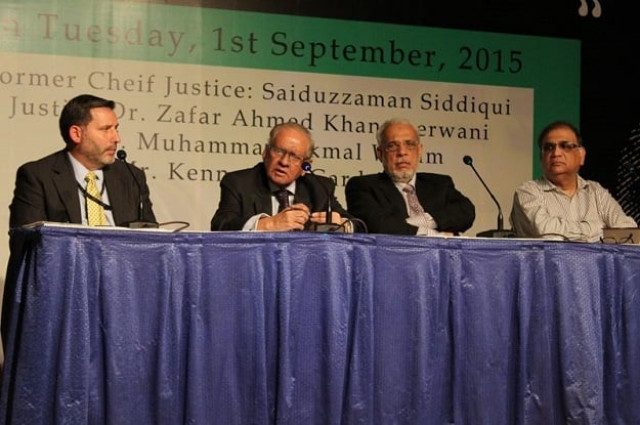The letter of the law
Jurists discuss the Qanoon-e-Shahadat

Jurists discuss the Qanoon-e-Shahadat. PHOTO: fb.com/PACC
He was speaking at a seminar on the Qanoon-e-Shahdat, the Law of Evidence, and its implications. In response to a question posed by a former judge of the Sindh High Court, Zafar Ahmed Khan Sherwani, on the state's hypocrisy in implementing laws, Siddiqui said that the judgment has remained on stay for the last 20 years.

Sherwani explained that the Qanoon-e-Shahadat of 1984 is an extension of the Evidence Act of 1872. "A few sections were added only with respect to the quantity and quality of witnesses. There really was no need of it. We see the same 1872 act being used in India," he said.
Pointing out the criticism on the evidence law, Siddiqui said that although the law was brought about by a dictator, parliamentary assemblies have never objected to it. "The law is open for amendments but the elected governments have never chosen to make any amendments to it so far," he explained.
He also stressed that there is no escape from this law. "You cannot promulgate any law that is in conflict with the Quran and Hadith as stated in the Constitution," he said
Professor and lawyer, Muhammad Akmal Wasim, spoke about the contradictory nature of Qanoon-e-Shahadat.
Justice Saiduzzaman said that implementation of laws is only possible if the government has the will to do so. "The biggest litigant is the government itself. That is why people don't get justice for as many as 15 years," he regretted.
Published in The Express Tribune, September 3rd, 2015.



















COMMENTS
Comments are moderated and generally will be posted if they are on-topic and not abusive.
For more information, please see our Comments FAQ